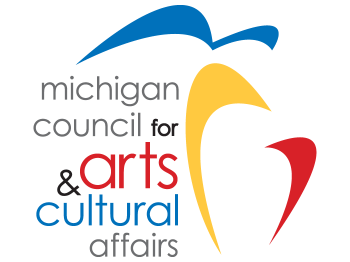Alex Krieger, known for his expertise and experience in the areas of urban planning and waterfront restoration and author of Remaking the Urban Waterfront, will be visiting Grand Rapids this Thursday for the Downtown Speaker Series "Growth Through Community" hosted by Downtown Grand Rapids Inc. The event is free and open to the public, with RSVP's encouraged.
"Primarily, my role is not to tell you about Grand Rapids," says Krieger of his upcoming talk, "but to show what other cities have done relative to waterfronts as Grand Rapids is about to embark on some planning regarding your urban waterfront."
In the talk, Krieger plans to identify seven or eight characterstics that are expected to be met by cities reorienting themselves to the waterfront.
"Historically, of course, waterfronts are primarily for transportation or industry, sometimes actually for the water itself," he says. "There's now this sort of turning from the water being a back door to being a front door to the city."
Krieger will use case studies from multiple cities that have revitalized their waterfronts, responding to that desire to come live or work near the water, such as Providence, Rhode Island- a city similar to Grand Rapids in size.
Krieger says that along with large organizations and city government, the community can take charge, as art students in Providence did with RiverFire.
"A fun version of [community-driven efforts] might be in Providence. After the river was reclaimed, or opened up, it still was relatively free of development around it, because that takes longer to come. The students at Rhode Island School of Design... they would set up little barges in the river, and set up bonfires them, set up loudspeakers...along a portion of the river, and thousands of people showed up to see this thing," he says. "Now every two weeks this carnival sort of atmosphere takes place, and that further started to drive the development."
Krieger will also present examples from cities as far away as China.
"Worldwide, cities are seeing this as a major economic development tool, because people are attracted to cities that are more pleasant... and that's usually found near their water. Many cities invest significantly as a way to encourage additional development, as a way to encourage people to move into the city, as a way to even stem the tide of suburbanization, as a way to encourage young people who grew up in the suburbs and find it kind of boring, as reasons to return to the city," says Krieger. "For many cities, it's an economic development strategy, and I suspect this may be the case with Grand Rapids as well."
Krieger says that though there are a wide variety of responses to waterfronts in urban areas, certain elements in planning are necessary for the plan to become successful. Location and public access, he says, are especially important in urban areas. But he says those aren't the only factors to consider.
"Continuity is [also] very important. In Boston, one can now take a bike ride for about 20 miles, more or less uninterrupted, starting along the river and working out towards our harbor. That took a long time to make sure that continuity existed. People use it for recreational purposes and for commuting purposes. It's not about size actually, it's about location of open spaces and the proximity of your downtown and the downtown neighborhoods," he says.
Krieger warns against grand plans that cities may ultimately find too expensive.
"You don't necessarily need to overdo it," he says. "One thing to not do is to launch into a huge, overly ambitious riverfront promenade project. There's an old mayor of Pittsburg, years ago, [who would] on a Saturday or Sunday send out his public works department to carve out a walkway to the riverfront between privately owned properties, just as a way to make a connection to the river. Over time, this became quite a benefit for the city as more and more of the riverfront began to open up. So sometimes you don't have to over-reach. You have to scale this properly."
"Primarily, you don't have to overdo it, you just have to proceed in a sensible way," says Krieger. "You have to implement things, rather than launch this long-term visionary plan that sort of loses its appeal through its own scale."
Krieger will be presenting these and other examples of good urban waterfront development at Kendall College of Art and Design, 17 Pearl Street, this Thursday, August 1. Doors open at 5:30 p.m. Attendees are encouraged to RSVP on the Facebook event.
The Rapidian, a program of the 501(c)3 nonprofit Community Media Center, relies on the community’s support to help cover the cost of training reporters and publishing content.
We need your help.
If each of our readers and content creators who values this community platform help support its creation and maintenance, The Rapidian can continue to educate and facilitate a conversation around issues for years to come.
Please support The Rapidian and make a contribution today.

